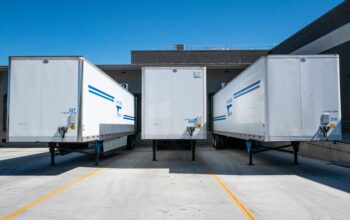Having a virtual office space is becoming increasingly popular. Not only did the Covid-19 pandemic force us to start working from home during lockdown, but it also proved that for many companies, having a virtual team working remotely is quite a reasonable option.
Companies who offer virtual-only employees to outsource to, like AVirtual UK for example, are confirming that it is possible to manage a massive virtual team effectively to ensure productivity and employee satisfaction.
The idea of a virtual office is not necessarily a new one, but it is gaining momentum. A virtual office offers a flexible workspace that can provide businesses with a combination of services from the space and the technology required to run a company.
It’s cost-effective and flexible
Having a physical, traditional office space means business owners often need to part with large sums to pay for rent, utilities, and the maintenance of the space. Often, additional staff such as cleaners and maintenance officers must be hired by companies to keep all the moving parts of a traditional office space functioning.
Creating a virtual office is a far more affordable alternative to a traditional office building, particularly for businesses that can function online.
A virtual office also allows for flexibility. Perhaps there are certain times of the year when a company would need all hands on deck, and so a co-working space would then be valuable. But business owners may find that for the rest of the year, remote work suits the company better. A virtual office provides this kind of flexibility.
You can tap into global talent
Moving towards a virtual office means that businesses don’t have to recruit locally. Instead, they can recruit anyone from anywhere in the world. Of course, it would have to mean that these team members would generally not be available to attend in-person meetings or a co-working space. But what it does do is open a vast and endless pool of talent to choose from.
The Internet is everything
When it comes to working virtually, it is the system and technological infrastructure that holds everything together and makes it possible for companies to function outside of a traditional office. However, if one of these systems fail, or if the Internet goes down, it can become impossible for a business to operate.
In addition, if a team member is experiencing issues with their personal technology or setups at home, this could cost hours or even days of work. Having a co-working virtual office space that employees can visit if they are having technical difficulties, is a great option.
Less management is needed
Virtual offices give employees the freedom and flexibility to manage themselves and develop their workflow and productivity habits. This can lead to increased innovation and creativity.
A virtual office does not require much management, as long as the right tools are available to everyone involved.
In fact, a recent whitepaper found that employees who work remotely actually have better relationships with supervisors and management due to increased job satisfaction and lowered work-related stress. So, in a way, creating a virtual office can improve your existing management structures.
Lack of social contact
In a recent survey, it was found that 19% of respondents, who were working remotely at the time, reported that loneliness was a challenge for them. Collaboration, at a physical office space, is often what helps people feel connected and can contribute to higher levels of productivity. The lack of social contact that is involved in working from home might leave business owners having to deal with employees who are demotivated and who feel isolated.
However, hiring a flexible virtual office space does allow colleagues to have co-working days where they work together in person. A great option is to hold these kinds of days regularly so that employees don’t feel so alone when working remotely. It also boosts team morale and camaraderie.
There are both upsides and downsides to creating a virtual office space. Whilst this is certainly an excellent way for companies to save money by not paying for the overheads that come with traditional office space, there is always the risk that your entire operation could crumble if one of the systems you use goes down. Whether a virtual office will work for an organisation will take some careful consideration as to what is most suitable for the type of work being carried out as well as how well a team functions when they’re not all in one physical space.




